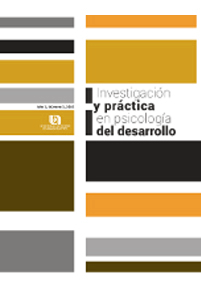Institution, childhood and subjectivity
DOI:
https://doi.org/10.33064/ippd52180Abstract
This essay is based on a work experience conducted by the research group on Studies on childhood and adolescence at the Faculty of Psychology of the Universidad Michoacana de San Nicolás de Hidalgo, entitled "Program of diagnosis and intervention for adoption" held at DIF Michoacán in 2016-17 with children and adolescents from an institution called “Casa Hogar”. Taking a critical position based on a psychoanalytic view, a series of reflections on the impact of the institutional discourse over the development of the child as a line of transcendence for subjectification since it is constituted from the others’ gaze. The way in which the institutional discourse causes an effect on the child is discussed, since it defines him or her as an abandoned child when naming him and enunciating him as a subject in need and deserving of charity; positioning him in that subjective place, sometimes immovable, because it is an institution that always decides for him in the name of his care and his good.
Downloads
References
Dolto, F. (1985/2006). Niños Abandonados. El Seudodébil. En Seminario de psicoanálisis de niños 2 (págs. 89-99). México: Siglo XXI.
Freud, S. (1905/2008). La sexualidad infantil. En Tres ensayos de teoría sexual (págs. 87-125). Buenos Aires: Amorrortu.
Foucault, M. (1975/1976). Vigilar y Castigar. El nacimiento de la prisión. México: Siglo XXI.
Kojève, A. (1982). La dialéctica del amo y del esclavo en Hegel. Buenos Aires, La Pléyade.
Lacan, J. (1956/2008). Seminario 3. La Psicosis. Buenos Aires: Paidós.
López, A. (2014) Cómo hablan los niños. En A. Colín (Coord.), El niño y el discurso del Otro (págs. 85-108). México: Kanankil.
Rojas, M., Ribeiro, R. y Novoa, V. (2011). Apuntes sobre la atención clínica en Instituciones. En R. De La Mora y R. Ribeiro (Coords.), Psicoanálisis, clínica y sociedad (págs. 91-110). México: Fontamara.
Downloads
Published
How to Cite
Issue
Section
License
Attribution-NonCommercial-ShareAlike 4.0 International (CC BY-NC-SA 4.0)
You are free to:
Share — copy and redistribute the material in any medium or format
Adapt — remix, transform, and build upon the material
The licensor cannot revoke these freedoms as long as you follow the license terms.










